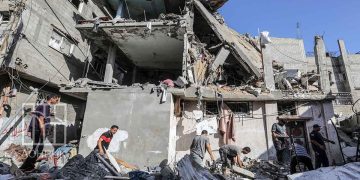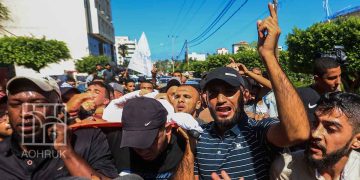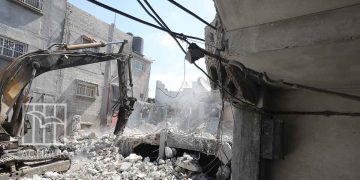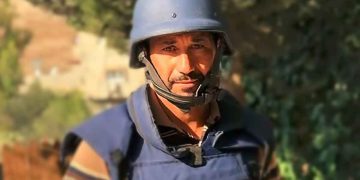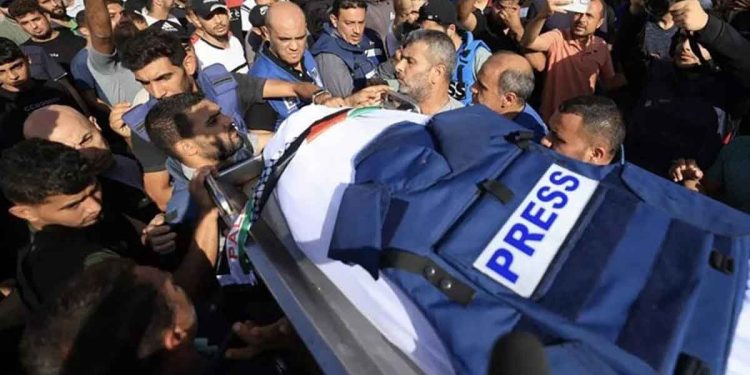Five Palestinian journalists were killed within a 24-hour period during continued Israeli military operations across the Gaza Strip, bringing the total number of journalists killed since the onset of the conflict to 222, according to local media sources and human rights monitors.
In Qarara, east of Khan Younis, the body of journalist Abdel Rahman Tawfiq Al-Abadleh was discovered two days after contact with him had been lost. He was confirmed dead following an airstrike that targeted the area where he was last seen.
In the northern Gaza Strip, journalist Aziz Al-Hajjar was killed along with his wife and children in an air raid on their home in the Bir Al-Naja neighbourhood. In Deir Al-Balah, central Gaza, journalist Khaled Abu Saif and his wife, broadcaster Nour Qandil, were killed alongside their young daughter when their home was struck.
In western Khan Younis, journalist Ahmed Al-Zeenati was killed together with his wife, Nour Al-Madhoun, and their two children, Mohammed and Khaled, after an airstrike hit their tent in the Sanabel camp near the Kuwaiti Field Hospital.
These deaths form part of a broader pattern of what local and international observers have described as targeted and systematic attacks on journalists and media infrastructure. Since the beginning of hostilities in October 2023, numerous press offices have been destroyed, broadcasting disrupted, and field reporters actively pursued. Internet and communications blackouts have also been reported during critical military escalations.
International humanitarian law affords journalists special protections under Article 79 of Additional Protocol I to the Geneva Conventions of 1977, which explicitly mandates respect and protection for journalists engaged in dangerous professional missions in conflict zones.
The intentional targeting of journalists, especially when not justified by direct military necessity, constitutes a grave breach of international law. When such attacks occur systematically or on a large scale, they may rise to the level of crimes against humanity.
Observers note that these repeated incidents, in conjunction with the severe information blackout imposed on Gaza, raise serious concerns regarding attempts to obstruct the documentation of potential violations and to facilitate impunity.
The continued inaction by international bodies tasked with the protection of journalists in conflict areas has been cited as a contributing factor to the persistence of such attacks. The killings of over 200 journalists since the beginning of the current conflict not only highlight the extreme risks faced by the Palestinian press but also reflect a systematic attempt to silence independent reporting and suppress the recording of civilian suffering.
In the current context, ensuring the protection of journalists in Gaza is not solely a professional or ethical obligation but a matter of fundamental human rights. The right of communities to access information and the right of victims to have their experiences documented are integral to accountability and justice.


